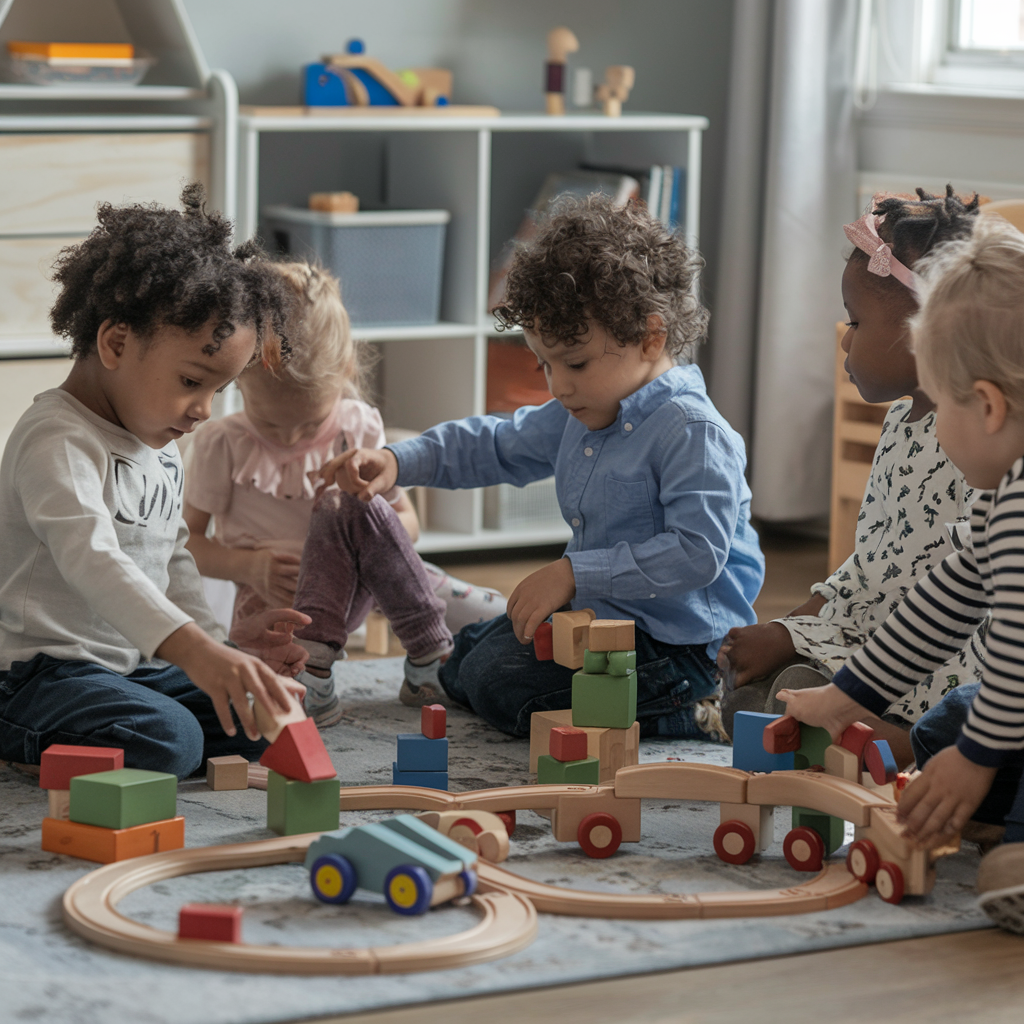Educational wooden toys are more than just playthings; they are essential tools for a child’s development, especially during the early years. Their simplicity, durability, and interactive nature make them ideal for supporting cognitive, sensory, and motor skills in a natural and engaging way. Let’s explore why these toys hold such value and how they benefit young children.

1. Promoting Hands-On Learning and Discovery
Wooden toys are tactile and encourage hands-on interaction, which is key to learning during early childhood. Unlike plastic toys that may be overly complex or include digital features, wooden toys allow a child to engage fully with the material, shapes, and weight, fostering curiosity and exploration. This sensory engagement is invaluable for learning about cause and effect and understanding basic concepts through direct experience.
- Examples of hands-on wooden toys: Blocks, shape sorters, stacking rings, and puzzle boards.
- Benefits: Children can learn through trial and error, boosting their problem-solving skills in a calm, pressure-free environment.
2. Building Fine and Gross Motor Skills
The simplicity of wooden toys often requires children to use both fine and gross motor skills, encouraging them to pick up, stack, balance, and arrange objects carefully. This helps develop hand-eye coordination, finger strength, and precision, which are foundational for later skills like writing and drawing. Wooden toys such as lacing beads, threading boards, and stacking blocks are fantastic for encouraging this development.
- Fine motor skill development: Toys like bead threading, where children improve finger dexterity.
- Gross motor skill development: Larger toys like building blocks, which require balance and coordination.
3. Encouraging Problem-Solving and Cognitive Growth
Many wooden toys are designed to inspire problem-solving, such as puzzles, shape sorters, and building sets. When children engage with these toys, they are challenged to think critically and creatively. They learn to make decisions, anticipate outcomes, and adapt their approaches. This process not only enhances cognitive flexibility but also builds confidence as children experience the satisfaction of solving problems on their own.
- Examples of cognitive-building toys: Simple jigsaw puzzles, shape sorters, and construction sets.
- Benefits: Strengthening cognitive flexibility and resilience through repeated practice.
4. Supporting Language Development and Social Skills
Wooden toys often encourage open-ended play, which is ideal for social interaction and language development. When children engage with toys like animal figurines, wooden dolls, or building blocks, they often invent stories, create characters, and dialogue as they play. This fosters verbal expression, storytelling, and the basics of cooperative play when sharing toys with others.
- Language-building examples: Toy kitchens, figurines, and toy animals.
- Benefits for social skills: Encouraging turn-taking, sharing, and imaginative play with peers.
5. Sustainable and Safe: Peace of Mind for Parents
In addition to their developmental benefits, educational wooden toys are typically eco-friendly and durable, making them a sustainable choice. Quality wooden toys are often made from natural materials and are free from harmful chemicals. This ensures that children can play safely while parents have the assurance that these toys are less likely to contribute to environmental waste or expose their child to toxins.
- Eco-friendly aspects: Many wooden toys are crafted from responsibly sourced wood and treated with non-toxic finishes.
- Longevity: Wooden toys can be passed down, making them a durable choice that supports sustainable play.
6. Cultivating Focus and Patience
The open-ended nature of wooden toys encourages children to engage deeply, which promotes focus and patience. With fewer distractions than digital toys, wooden toys help children immerse themselves in play for longer periods. This kind of engagement is essential in early childhood, as it fosters attention span and the ability to complete tasks — foundational skills for success in school and beyond.
Conclusion
Educational wooden toys are invaluable in early childhood for their ability to encourage exploration, creativity, motor skills, and cognitive development. Their simplicity, natural materials, and durability make them a wise investment in a child’s growth and learning. Wooden toys not only offer diverse developmental benefits but also align with a sustainable and safe approach to parenting. By choosing these toys, parents can support a child’s early education in a way that’s both nurturing and environmentally conscious, setting a foundation for lifelong curiosity and learning.
